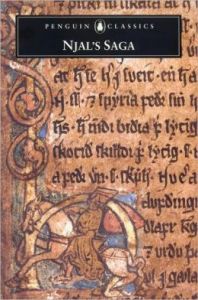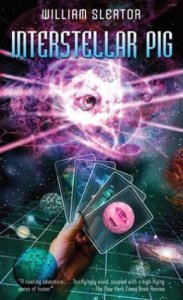My favorite class from my first year of graduate school boasted the title: Medieval Literature, non-Chaucer. We read works by Margery Kempe, William Langland, and Julian of Norwich, all in Middle English, and I found that I loved it. I also realized, that when push came to shove, immersion in Medieval Literature was not what I wanted for my life’s work.
Searching back for the moment I was inspired to become a teacher, I paused at a string of moments that were candidates for that life changing event: Mr. Gossack throwing an eraser in my high school math class, and then walking to the office to admit that it accidentally hit a student; a philosophy professor, Dave, inspiring me in an independent study of Plato, and showing me how student driven inquiry could be so powerful; and the moment when a friend and newly minted teacher told me about getting ready for his first teaching position, and I knew I wanted that level of purposeful joy.
But it turned out that the memory that continued to assert itself didn’t take place in a classroom, or amongst other teachers, or even when I was a high school student. For me, the defining moment in my decision to become a teacher came on a snowy November day as I sat alone in my efficiency apartment in East Lansing, Michigan reading Njal’s Saga.
 That semester I’d found myself a few credits shy of what I needed to keep financial aid, so I signed up for one education course along with the literature classes that I was taking in my graduate program. It was a two credit affair, with only a couple of papers and a requirement that I observe in a local school. I could see a middle school from the window of my apartment, and I marched over in my Michigan State sweatshirt and asked if I could sit in on some classes. They put me in an English class, and I remember the dissonance I felt on that first day as I listened as the class read aloud from William Sleator’s Interstellar Pig.
That semester I’d found myself a few credits shy of what I needed to keep financial aid, so I signed up for one education course along with the literature classes that I was taking in my graduate program. It was a two credit affair, with only a couple of papers and a requirement that I observe in a local school. I could see a middle school from the window of my apartment, and I marched over in my Michigan State sweatshirt and asked if I could sit in on some classes. They put me in an English class, and I remember the dissonance I felt on that first day as I listened as the class read aloud from William Sleator’s Interstellar Pig.
This was not Medieval Literature. I wasn’t convinced it was even literature.
 I stayed for a class, jotted some notes I could turn in later, and left. I’d come back every week over the course of the term, and see twelve and thirteen year olds learn to read critically and write analytically.
I stayed for a class, jotted some notes I could turn in later, and left. I’d come back every week over the course of the term, and see twelve and thirteen year olds learn to read critically and write analytically.
And then I’d go back to my apartment and plow through Tristram Shandy and Paradise Lost. I loved the great books I was reading, but as fall days shortened into winter, and snow began to pile outside my door, the ivory tower began to lose some of its appeal.
Friends I knew in academe loved what they did, and I couldn’t imagine them doing anything else. For me, however, the idea of a life lived in thick books and ivy covered buildings began to feel… well, a little off.
And on that night when I was sitting at my desk, Njal’s Saga open in front of me, it hit me: I wanted to live a life connected to the real world. I wanted to make a difference.
I left graduate school at the end of the term, returning to Oregon and unloading trucks for a year as I figured out how I might make that difference. It turned out to be teaching, and with each year I spent in front of a class I found I loved it more.
From time to time, when I think back on my days at Michigan State, my memories always include the moment when I realized that one chapter of my life was over, and that something important was about to begin. I didn’t completely know it then, but I was going to be a teacher.
I can see in your story the surprise that comes from finding out “what you will do when you grow up” in the shadows rather than on the loud speaker – either way it is a joy when we finally hear it!
As long as we’re sharing, I had a similar realization from different circumstances. I was doing graduate studies at UCSD in their Science Studies program: history, philosophy, and sociology of science. It was one of the leading centers of this work in the world, having gotten a large grant from the NSF. I’m not sure how I got in; some clerical error, probably.
I enjoyed the history part of the program very much, the sociology a bit, and the philosophy not at all. Regardless, I realized I just wasn’t very good at playing the seminar game. At the same time, I was working as a TA for undergraduates in their history and writing core requirement classes. Here was something I enjoyed doing and actually had a talent for. Still, I intended to stick with the graduate program and at least get a Masters degree out of it, if not a doctorate. Professors and other students in the program didn’t really understand; they did not enjoy any teaching they were required to do, and saw it as taking time away from their research and writing. I, on the other hand, considered research and writing to be taking time away from my teaching.
The final straw was a seminar one afternoon in which us graduate students were to present preliminary results on our research topics. As I mentioned, this was a leading center for Science Studies, so there were visiting professors from around the world who sat in with us. I can still remember the room as the first student presented his work, which was based on the work of one of the visiting professors sitting in the room. Another student challenged his conclusions, based on the work of another professor in the room. The next student stood up and presented her work, based on the work of yet another person in the room. We went on this way for two hours, never ONCE referring to anyone outside of the room. It was the most amazing display of academic navel-gazing I have ever seen.
I do not even remember what my research topic was, because by the time they got to me, I had decided to quit. I do remember thinking, “None of this is helping my students in any way, shape or form.” I wasn’t sure exactly what I was going to do, but I knew that this graduate program was not for me.
You cut to the core when you say “none of this is helping students…” The best teachers I’ve ever known, including scores I work with right now, begin and end everything they do with and for kids by asking how what they are doing helps students learn.”
Also, I cannot read about Njal’s Saga without thinking of this:
There is simply not enough Icelandic Saga satire in our world today. Thanks for sharing this gem. Awesome!
Pingback: #YourEdustory | bjornpaige
Pingback: Werre and Wrake and Wonder: Sir Gawain and The Green Knight | bjornpaige